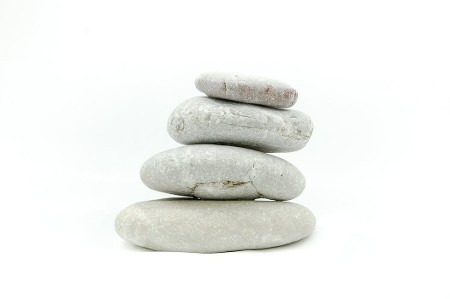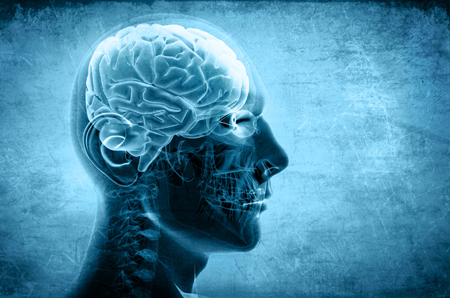Last Page Update 8/16/2018
Providing the Stress Management Support Your Deserve
Everyone has to deal with difficult people, whether they are argumentative, abusive, stubborn, or combative. The question is: how can you assert your rights without creating an unnecessary incident?
In most cases, angry people are screaming to be heard. They want to be valued, loved, and listened to. They want to feel important, but aren't able to express themselves constructively. With the right attitude, it's possible to get past these insecurities and reach an understanding.
More Reasons to Meditate
By; Ashraf Girgis N.D.
 |
We sometimes talk about meditation as if it is an exclusive club. You can enter only if you are wearing a saffron-colored robe as a Buddhist, have a yoki master's gaze into the eternity, or if you look like a Muslim scholar or Sufi master with a forever calm, serene look of never-ending wisdom. However, meditation can be seen and performed in every action we take, in every moment, and in every second of our lives.
Although there are thousands of ways one can perform mediation, the focus of most scientists’ studies in the United States has been on transcendental meditation and mindful meditation.
The attention about meditation and its health benefits reached its peak in the 60s and 70s. The scientists since FMRI(functional magnetic resonance imaging) was developed in the 90s have had the ability to look inside the brain and monitor its activities when one meditates.
A Harvard scientist, cardiologist Herbert Benson, started to study transcendental meditation before FMRI. At the time, he was trying to see how patients can lower their blood pressure without any medication. He was approached by a transcendental meditation group in Boston that asked him to study them. At first, he was very reluctant; he wasn’t sure how the institution would respond. But, as they insisted, he decided to proceed. He felt embarrassed doing something so unconventional in such an esteemed place like Harvard. He was so concerned about being judged negatively by his colleagues that he asked his participants to come in through the back door of his lab so no one would see them. That was the beginning of his lifelong research on meditations and was followed by many publications. Many other scientists, such as Richard Davidson, Dr. Daniel Segal, and Jon Kabat Zinn started to look into the benefits of mediation.
|

|
Though there are thousands of different ways to meditate, the fundamental base in all meditation is focus and attention. This focus and attention can be placed on one thought, object, action, or image. Attention is given to a larger focus, such as being conscious of everything that is around us and everything we do, using all of our senses.
One of the very simple and basic method of this is focusing our attention on one object and focusing our breath on one item for a few minutes at a time. Continue breathing without making any changes to the pattern or any change in its depth or its frequency, simply observing it. If our attention is deviated or we get simply distracted by other issues, we simply acknowledge our distraction without fighting it and try to bring back focus, or we may expand our focus and attention into seeing everything that is in our path and devote our total attention to it. It is like having either a laser light beaming into one little hole or expanding that light to engulf everything that is around us.
Almost all religions practice meditation in one way or another. For example, when Muslims pray several times daily (4-5 times), the focus and attention was placed on prayers and meaning of the words used. When Muslims use rosaries, repeating a prayer over and over, that is an excellent way of meditation. The same goes for Christianity, either doing prayer or using rosary, the focus is on one thing. You are meditating. I always encourage people who pray regularly to continue to use their prayer as the focus of their meditation because of the core spiritual values it has for them. Oftentimes this creates a deeper impact.
|
|
However, if you are not religious, you can simply choose an object in your imagination or a word that has significance to make meditation work. Many individuals like to repeat phrases like, “ I am at peace with the universe all around me”, “I am a peaceful person”, or simply use visualization. Think about the place that makes you feel exceptionally happy and at peace. If you have no time to dedicate for meditation, why not pay attention to every moment of your life? Be conscious in whatever activities you are engaged in, using all your senses. You could also do both. Meditate at a specific time in specific ways or use mindfulness as a way of life. Whichever way you choose, it will impact your life and overall being many ways.
Being present “ HERE and NOW” has been proven, based on evidence, to make significant changes in our brain, leading to many benefits. Dr. Segal, one of the experts in mindful meditation, describes how he was making a presentation to a group of parents at a school, informing them about the studies he has done and how significant mindful interaction is for parents with their kids. He told them how it helps children to develop in positive ways, emotionally and physically. He explained how at the time, he had no clue about the ways of mindfulness of Buddhists, and when some in the audience came to him after the presentation and asked if he meant mindful meditation, he felt awkward because he had no idea what they were talking about. Until one day, he was asked to present his research findings at a scientific meeting with other researchers who had actually studied mindful meditation and its benefits. He was amazed how similar the conclusions were between his presentation and the other researchers were about the benefits of mindful interactions.
He suggests we bring COAL, a state of mind, into all our interactions. This is an acronym for CURIOSITY, OPENNESS, ACCEPTANCE, AND LOVE. Just imagine how drastically your life would change if you utilize COAL. Not only would your relationships change for the better, but also many developments happen in your brain. Below are several benefits.
|

|
|

|
1. Two scientists, Davidson, Richard J. PhD; Kabat?Zinn, who are well known in the U.S. for their work with mindful meditation, conducted a study to find out if there are significant increases in antibody titers in the influenza vaccine among meditators in comparison to non-meditators. They concluded: “Findings demonstrate that a short program in mindfulness meditation produces demonstrable effects on brain and immune function. These findings suggest that meditation may change brain and immune function in positive ways and underscore the need for additional research” study was done on 8 week and healthy on individuals”.
|
|
2. Meditation reduces pain
They found meditation increases the threshold for pain in another study by Fadel Zeidan, Ph.D et al from the University of NC published in the Journal of Neuroscience. Participants after only four days of practicing meditation were found to report having reduced pain-unpleasantness by 57% and pain-intensity ratings by 40% in comparison to control group. There have been other studies that also show a decrease in pain as one meditates.
|

|
|

|
3. Meditation improves happiness
B. L. Fredrickson's (1998, 2001) conducted a study on 139 people by having them practice a type of loving-kindness meditation on a daily basis. The participants had increased mindfulness, increase in social support, purpose in life, and lower numbers of illnesses, resulting in overall satisfaction in their lives.
To organize a talk in your community about meditation and its numerous benefits, in addition to learning how to meditate, feel free to contact Dr. Girgis by emailing her directly at: contactcurenaturally@gmail.com. Talks are scheduled at least 6 months in advance.
Thanks for visiting curenaturally.org
|
References:
|
|
Additional Articles
|
 Health: The Biology of Joy Health: The Biology of Joy
Read More
|

Americans Are A Lonely Lot, And Young People Bear The Heaviest Burden
Read More
|

Aging and Stress
Read More
|
|
|
|

The Chemistry of Happiness
Read More |

The Tell Tale Signs of Burnout ... Do You Have Them?
Read More
|
 Therapeutic effects of music Therapeutic effects of music
Read More
|
|
|
|
|